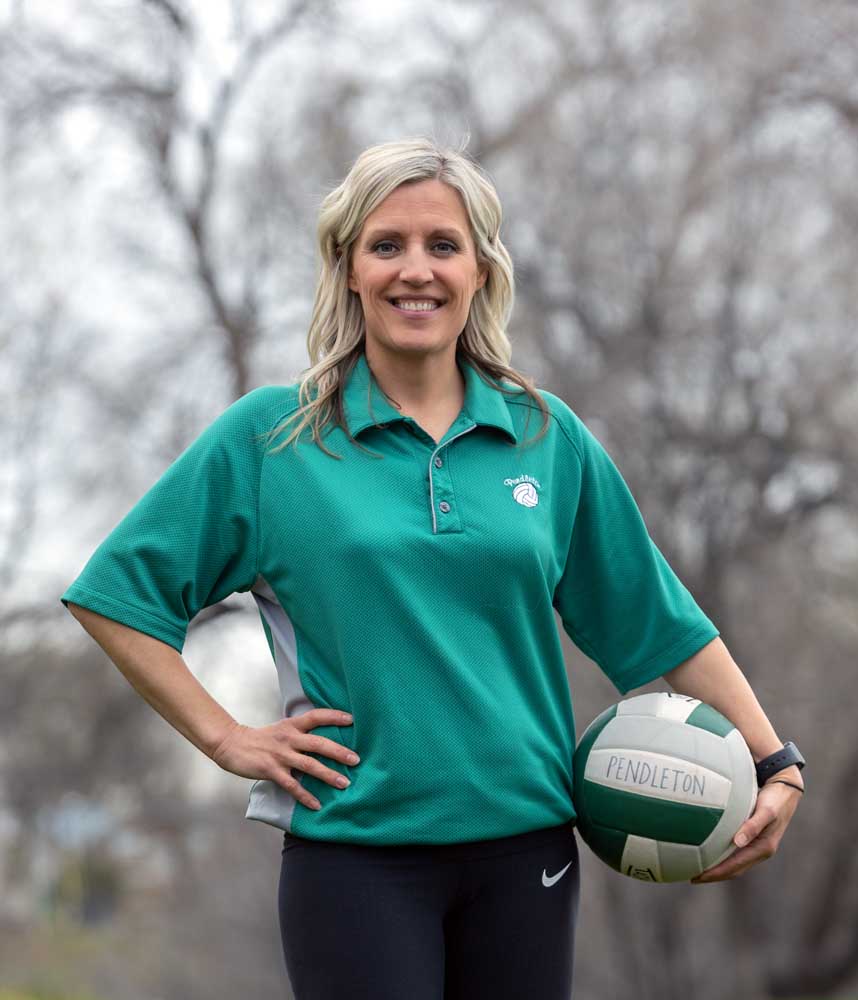Former Pendleton volleyball coach loses Oregon teaching license
Published 7:23 am Thursday, May 22, 2025

- Pendleton High School’s former volleyball coach Chelsie Speer poses for a photo April 13, 2022. Speer resigned from the position Aug. 12, 2024, after about two years as head coach, and had her educator license revoked in April 2025 by the Oregon Teacher Standards and Practices Commission.
PENDLETON — In early April, former Pendleton High School volleyball coach Chelsie Speer lost her teaching license after an investigation into allegations of inappropriate conduct involving a former student at the high school.
The Oregon Teacher Standards and Practices Commission on April 4 revoked Speer’s license temporarily. Speer held a restricted teaching license since October 2008 with endorsements in health and physical education.
On Aug. 12, 2024, Pendleton School District submitted a misconduct report to the commission. Speer had resigned from the district around the same time. The report alleged Speer had “engaged in inappropriate sexual communications with a former student via electronic communications and in-person conversations” starting the summer of 2023.
Trending
The commission’s investigation substantiated the claim. Speer admitted she exchanged messages with an 18-year-old Pendleton High School graduate between August 2023 and July 2024. The student, who graduated in June 2023, had not been a student of Speer’s.
Throughout that period, Speer said she’d been “suffering from a then undiagnosed alcohol use disorder and depression,” according to the investigation’s stipulation of fact. The stipulation also said Speer reported she’s now in “extensive sobriety and mental health treatment.”
Before starting at Pendleton in 2022, Speer was head volleyball coach at Walla Walla Community College for eight years. She lost that position for failure to get a COVID-19 vaccination because of religious beliefs. She received a religious exemption to the vaccination from Pendleton.
Some of the goals of the Teacher Standards and Practices Commission are to license educators and school personnel in Oregon and to discipline educators when they commit crimes or violate ethical standards. Consequences for these violations span from a letter of reprimand to a permanent revocation of an educator’s license.
In Speer’s case, the revocation is temporary — meaning a minimum of a one-year loss of the license — because she has not been convicted of any crimes under Oregon law. After a year, Speer may choose to petition to reinstate her license.
According to Christina Edgar, director of professional practices with the commission, the burden is on educators with temporarily revoked licenses to prove their fitness to again hold a license. State law says the commission can require an applicant to “furnish evidence satisfactory to the commission of good moral character, mental and physical health and other such evidence” in order to determine applicant fitness for reinstatement.
Trending
If someone had their license revoked for issues related to drug or alcohol use, for example, Edgar said that person would likely need to at least show the commission they are sober and have gone through treatment. Speer’s order cites gross neglect of duty as the overarching reason for revocation.
“I can’t say what exactly the commission would require in a specific case,” Edgar said, “but I would assume that the applicant would need to address all the issues (that led to the license being revoked).”









